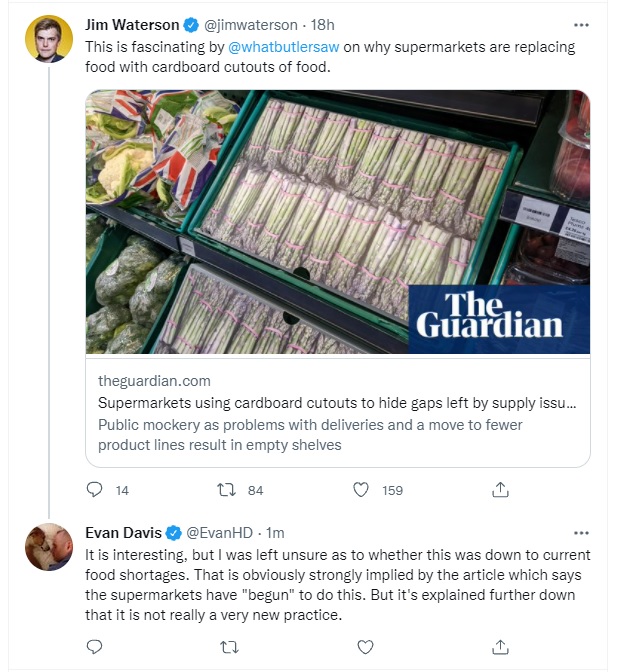
I have opinions about this rebuttal of @DavidGauke claiming he: "simply looks at the timeline of what has happened post-Brexit and ignores the broader context of trade policy"
...and I have facts too! (Thread)
conservativehome.com/thecolumnists/…
...and I have facts too! (Thread)
conservativehome.com/thecolumnists/…
If someone joined because they thought we were more about free trade than the EU, then it's nothing short of historical illiteracy.
When the UK joined the EEC it had an average higher tariff than that of the Common External Tariff (CET) of the six.
That should come as no surprise, the UK had *always* had an average tariff higher than that of the EEC.
It's true they had higher tariffs than the UK on agriculture, but the UK had higher tariffs on industry.
But that shouldn't be a surprise when you consider that France had an agricultural revolution at the same time as the UK had an industrial revolution.
It possible for some countries to be more protectionist that others in certain areas, but if you want to argue one is more protectionist overall, you have to look at the average.
When we look at the creation of the CET, it was not dominated by French policy but set halfway between the lowest tariffs of Germany and Benelux and the higher ones of France and Italy.
In 1967 the UK's industrial tariffs and semi finished goods were almost double that of the EEC.
It should also not be a surprise that in the JFK files you can see that part of the president's reasoning of getting the UK into the EEC was that the UK would adopt the Common External Tariff and give the US greater access to our market.
(The CET predates the CU)
(The CET predates the CU)
From a Commonwealth preference perspective, the EEC also did better than the UK with the Yaoundé Convention.
Any products made of man made fabric coming from the Commonwealth were subject to duty, but not in the EEC, and not in the subsequent deal (Lomé) that the UK did in the EEC.
This meant poorer Commonwealth countries were no longer restricted from selling in the UK value added products which would contribute to greater economic growth.
It's also a fact that the UK would have been more protectionist had it not been for European agreements.
The UK government were on the verge of adding protections to cut flowers but had to drop those plans when they began to negotiate with EFTA.
The UK have also added protections *despite* their international agreements. They added import subsidies against the EFTA agreement and then nearly brought an end to the whole initiative by ignoring the treaty and adding a 10% tariff to frozen fish.
That was done in a time when we were still protecting Jute, a "temporary" measure introduced to help us in WWI.
The UK have always talked a good game on free trade, but that wasn't necessarily the experience of us that some countries got in the EEC and EU.
The UK were also able to hide some of their protectionism in the EU by abstaining from policies negative to the US, while privately backing them.
There was an article in CapX the other day saying we were a free trade nation without cabotage restrictions but then in 1972 we passed the Road Traffic (Foreign Vehicles) Act which regulating road haulage in line with European law.
The 1972 act was to solve a loophole in the law which prevented the government applying UK legislation to foreign vehicles. It was literally about applying UK vehicle law to European vehicle.
It was only later used to include the European cabotage regulations _that we wanted_.
It was only later used to include the European cabotage regulations _that we wanted_.
So it may be true that David Guake simply looked at the timeline of what has happened post-Brexit and ignores the broader context of trade policy, but Ryan should look at the broad context of UK policy making over the years.
Britain's moment of embracing free trade was between 1846 and 1915. 60 years of policy over a century ago.
Ryan Bourne argues David should consider the wider context of what is going on the world, but Ryan should also consider that those 60 years were also driven by circumstances.
The reality is that the UK is not as free trade as it thinks it is, and those in Europe are not as protectionist as the UK thinks they are.
/End
/End
• • •
Missing some Tweet in this thread? You can try to
force a refresh





